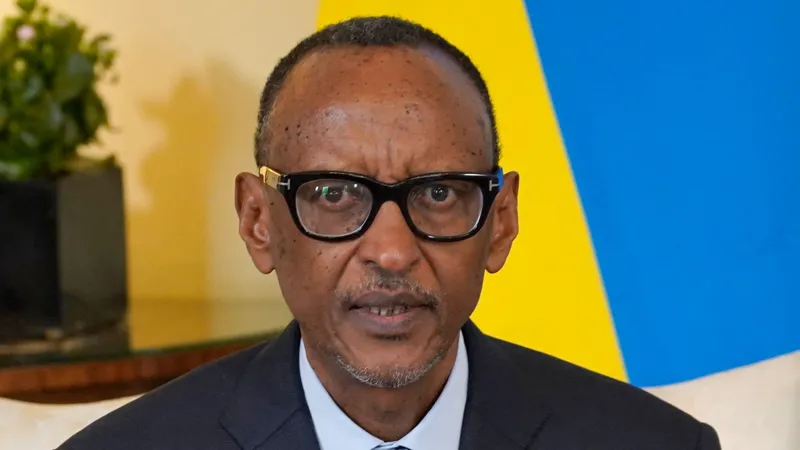In a powerful assertion of national sovereignty, Rwanda has recently severed its diplomatic ties with Belgium, a move rooted in a complex history marked by colonialism and contemporary misunderstandings. This significant shift is a statement against what Rwandan President Paul Kagame describes as “neo-colonial delusions”—perceptions and influences that many in Rwanda regard as remnants of the colonial past.
A Troubled Historical Relationship
Belgium’s colonial rule over Rwanda from 1916 to 1962 left deep scars. The Belgian administration exacerbated ethnic divisions between the Hutu and Tutsi populations, a strategy that ultimately contributed to the Rwandan genocide in 1994. Post-genocide, the Rwandan government has focused on national reconciliation and unity, preferring to shake off the shadows of its colonial past.
The Belgian government, however, has struggled with its colonial legacy. Over the years, it has admitted to its role in the events leading to the genocide but has often favored a paternalistic approach in its dealings with Rwanda. This dynamic has created tension, as Rwanda has sought to assert its own effectiveness in governance and development, an agenda that does not align with Belgium’s continued involvement.
Catalyst for the Break
The rupture was triggered by Belgium’s attempts to publicly critique Rwanda’s human rights record and its diplomatic engagement with dissidents. In a widely discussed move, Belgium recognized Rwandan opposition leaders as credible voices, which Rwanda’s government interpreted as a failure to respect its sovereignty and a continuation of colonial attitudes. The Rwandan government perceived this as an insult that attempts to undermine its authority and progress.
Furthermore, Kigali’s criticism of Belgium’s historical narratives—in particular, their depictions of the genocide and post-genocide recovery—has contributed to rising tensions. The Rwandan government insists on a narrative that emphasizes self-determination and resilience, which contrasts sharply with Belgium’s portrayal that sometimes dwells on humanitarian intervention and culpability.
The Neo-Colonial Argument
The concept of neo-colonialism—where former colonizers wield influence over their former colonies through political, economic, and cultural means—resonates strongly within Rwandan discourse. For Rwanda, the need to confront perceived neo-colonial relationships is urgent; the government sees such dynamics as hindrances to economic independence and national pride.
In recent years, Rwanda has effectively transformed itself into a regional powerhouse, focusing on technology, innovation, and economic growth. This growth trajectory has been underpinned by a strong national narrative and an unequivocal rejection of external influences that challenge Rwandan autonomy. Officials express that Rwanda’s development should not be dictated by its colonial past or by perceptions crafted by foreign powers.
Implications for International Relations
Rwanda’s break with Belgium serves as a warning to other former colonizers. Many countries are reconsidering how they engage with nations they once ruled, as the global landscape of power continues to evolve. With Rwanda’s focus on self-reliance and dignity, it is clear that former colonial powers must tread carefully in their relationships with nations that seek to assert their independence from historical legacies.
As Rwanda moves forward, it continues to seek partnerships based on equality and mutual respect. This decision to sever ties with Belgium is emblematic of a broader desire for agency and self-determination that resonates across former colonial territories. Rwanda’s narrative is no longer simply shaped by its past, but by its ambitions for the future—an identity it fiercely protects from neo-colonial shadows.
In conclusion, Rwanda’s break from Belgium is a bold declaration that emphasizes the importance of respecting autonomy while rejecting paternalism steeped in historical injustices. Rwanda stands as a testament to resilience and a clear message: colonial influences, whether direct or indirect, have no place in the contemporary global order.
Email Us on editorial@nnafrica.com













